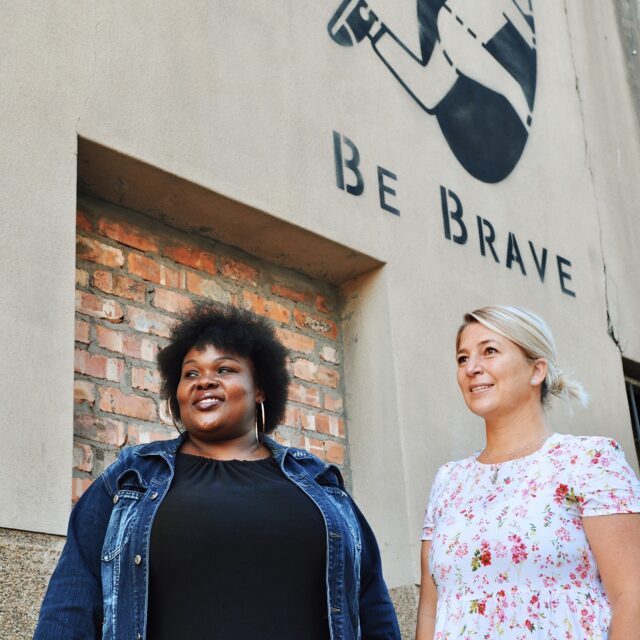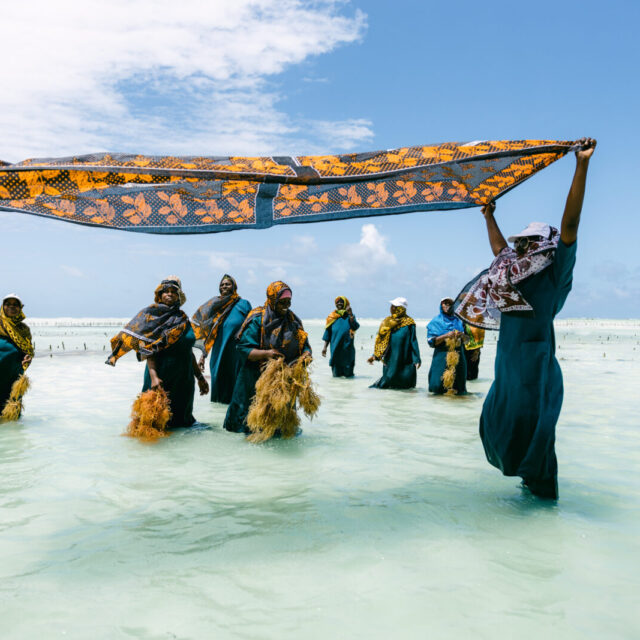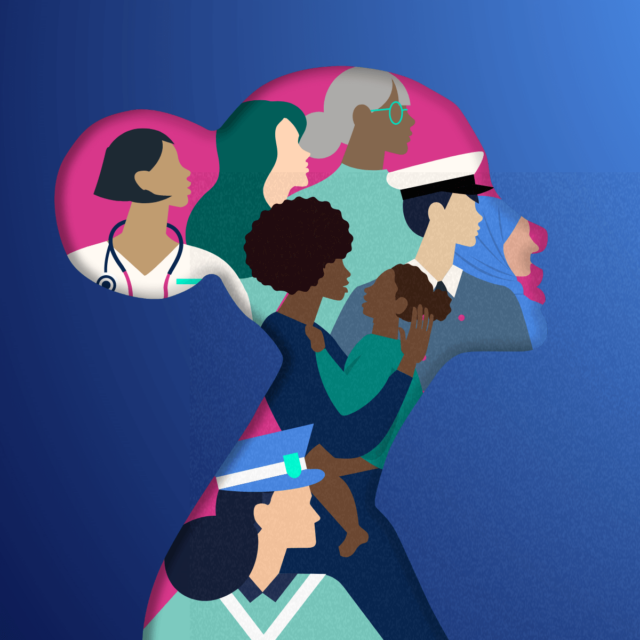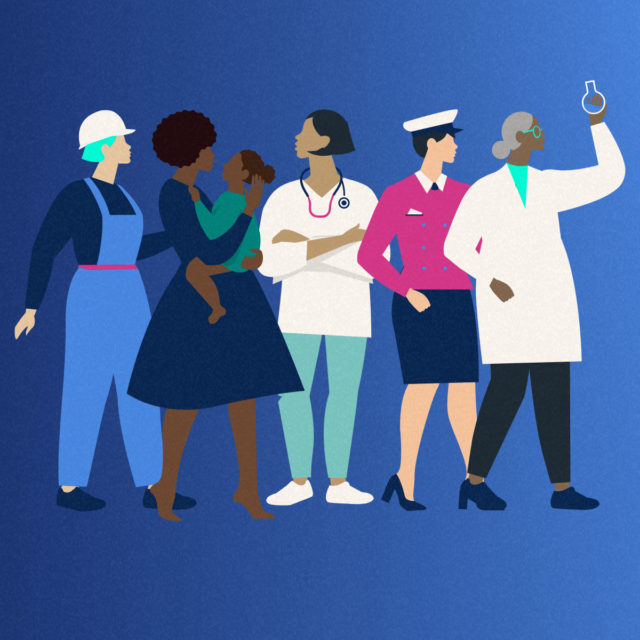Megan Gieske is a storyteller and photographer based in Cape Town, South Africa.
Behind the Table View police station in Milnerton, Cape Town, the Community Intervention Centre, painted a dazzling white, shines as a beacon of hope for women fleeing gender-based violence. Two women, Tam and Duduzile, sit in the welcome area. They are champions of women’s empowerment who are retelling their stories to anyone feeling trapped in the same circumstances they faced.
The mission of the Community Intervention Centre (CIC) is “to empower people in crisis.” They’re a free 24-hour trauma intervention and support center, providing up to six free counseling sessions, and a free 24-hour helpline in English, Afrikaans, isiXhosa, Zulu, and Xitsonga. Their helpline is open to anyone who needs it, including healthcare workers overwhelmed by the COVID-19 pandemic.
“Our biggest clientele, 80%, is domestic violence [survivors],” Daphne Whittaker, CIC’s manager, said. “[Our counselors and social workers] walk the road with these survivors. They will go through a program with them where they get help, life skills, and [learn] how to cope.”
Helping survivors heal from trauma
Tam found herself alone and isolated from friends and family while in an abusive relationship for seven years. When she left her partner in 2018, she had a three-and-a-half-year-old daughter, and complex post-traumatic stress disorder (PTSD). “That trauma holds you prisoner,” Tam said.
“You need that support, but you don’t know where to go,” Tam said. “You’d hope your friends or someone would notice, but unfortunately, when you’re that isolated, you don’t have that. There was nobody there to save me. I had to dig deep and save myself, and my daughter was the reason for that.” Concern for what would happen to her daughter if she lost her life was the tipping point that prompted Tam to take action.
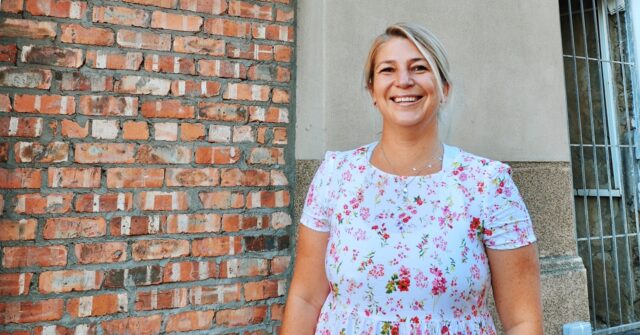
Although Tam was able to visit a psychologist, she still didn’t feel free from the burdens of the trauma she experienced. Rachel Kolisi, of the Kolisi Foundation, which is an organization that provides other organizations with the resources to help fight gender-based violence, told her about CIC. Tam met Rachel at a RISE Women event, where Tam later shared her story. At CIC, Tam said she felt heard, seen, and understood. She felt like she could reclaim her value, and begin to pick up the pieces of her power, especially after speaking with Jolene Yeo, a trauma supervisor at CIC. “I just felt that this woman understood the journey I’ve walked and that just makes all the difference,” Tam said.
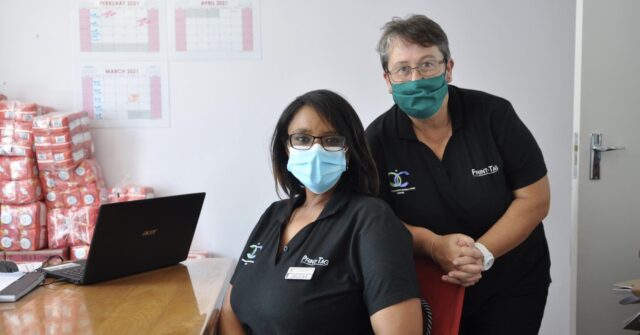
Jolene Yeo and Ronel O’Reilly, trauma supervisors at CIC, stand side by side, helping survivors find freedom from trauma.
“Tam is a very strong woman,” Jolene said, “When you see how she’s transformed from the first time that I saw her, that keeps me wanting to go back for that one more.”
Duduzile, another woman positively impacted by CIC, lived with an abusive boyfriend for five years. Now she lives with her two sons in their own place, and she is looking for a job. “Before, I didn’t even know there was peace in life,” Duduzile said. “You don’t even sleep peacefully because you don’t know what will happen in the morning or what’s going to happen after,” she said. “Now, I am free. I sleep like a baby now.”
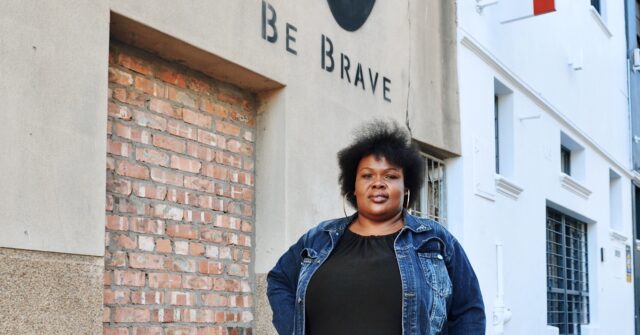
In March 2020, Duduzile’s local police station referred her to Phumze Makeke, a social worker at CIC. “I went for a protection order, then that’s when I got my life back. After [my boyfriend] received it, he knew he couldn’t come close to me,” she said. She and her two children went on to receive counseling at CIC. “We are so happy now. We are very happy,” she said.
Trauma can be hard to understand because it’s invisible and often isolating, but to women like Tam and Duduzile, counselors like Jolene and social workers like Phumze are important resources, helping them heal, reclaim their voices, and remember a sense of their own power.
How COVID-19 impacts CIC’s work
According to South African Police Minister Bheki Cele, just one week into lockdown more than 87,000 cases of gender-based violence were reported across the country. “Our domestic violence cases increased by 70% since the start of the hard lockdown in March 2020,” Daphne, CIC’s manager, said. They work directly with law enforcement, responding to trauma victims, re-educating perpetrators imprisoned for domestic violence, handing out information, and organizing marches “to show that we are there,” Daphne said. “Education is a big thing because a lot of people are not aware of where to go, who to talk to, or how to get a protection order,” she said.
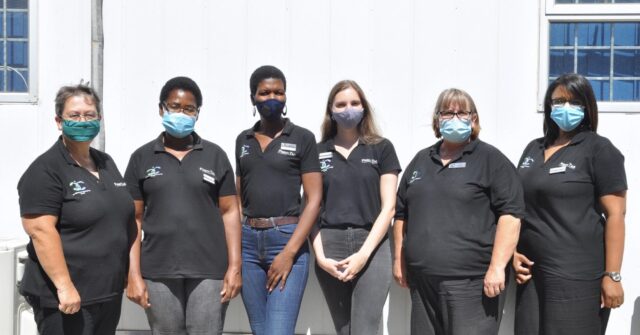
“Because the demand is so big,” Ronel, a trauma supervisor at CIC, said, they run trauma training workshops to equip volunteers “that have the same heart as what we have” to respond to trauma in their communities.
Since the beginning of the pandemic, Daphne said CIC started getting calls from women in lockdown at home with their abuser. When women from all over needed to find somewhere immediately to go to be safe, Daphne said, “We don’t say no. We help where we can.” She even helped one woman as far away as the bordering country of Namibia escape domestic violence.
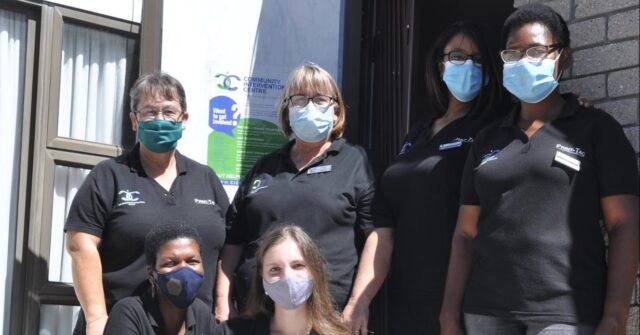
Most of CIC’s clients, like Duduzile, come from townships or informal settlements. “[During the hard lockdown], a lot of our clients reached out because they had no money and no food,” Daphne said. With help from the Kolisi Foundation, they were able to feed over 350 families.
Duduzile said CIC never stopped thinking about them. They provided her and her young family with food parcels and other necessities like sanitary pads, cleaning supplies, and even Christmas gifts — 10kgs of dry goods, food tins, and vegetables. “Everything. For Christmas, we got everything,” Duduzile said. “Since that time, we never struggled.”
Living free of shame, guilt, and judgment
“I was so reserved. I could not talk before,” Duduzile said.
Tam said, “I can’t thank CIC enough.” Now, she said, “I don’t feel that shame of sharing my story.”
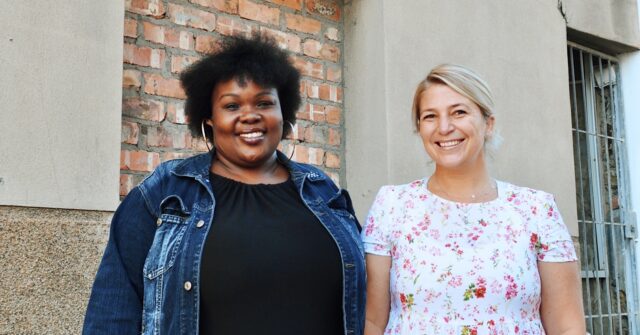
Both women share the same courage and conviction to tell their stories free of shame, guilt, and judgment, and to challenge other women to do the same. They’re united by their desire to see women everywhere find hope and healing, and by their belief in the value of counseling.
Last National Women’s Day in South Africa, Duduzile shared her story at a nonprofit for vulnerable women. “I told them you don’t need to live like this,” Duduzile said. “I didn’t think there was another life.” She said, “I told them ‘Your life is not about being with a man.’ A man is not meant to be someone to hold your life.” She encourages other women to learn new skills, become financially independent, and love themselves first.
Tam wants to tell other survivors, “Even though you feel broken now, you will survive. You can rebuild. You can pick yourself up, and you will be okay.” She wants to challenge men to call out abusive behavior in their friends and family, and to encourage women to reach out to their communities and places like CIC.
“And it is because of that that we fight the fight here on the ground,” Daphne said. “Our heart is in helping our people. That is why we are here.”
